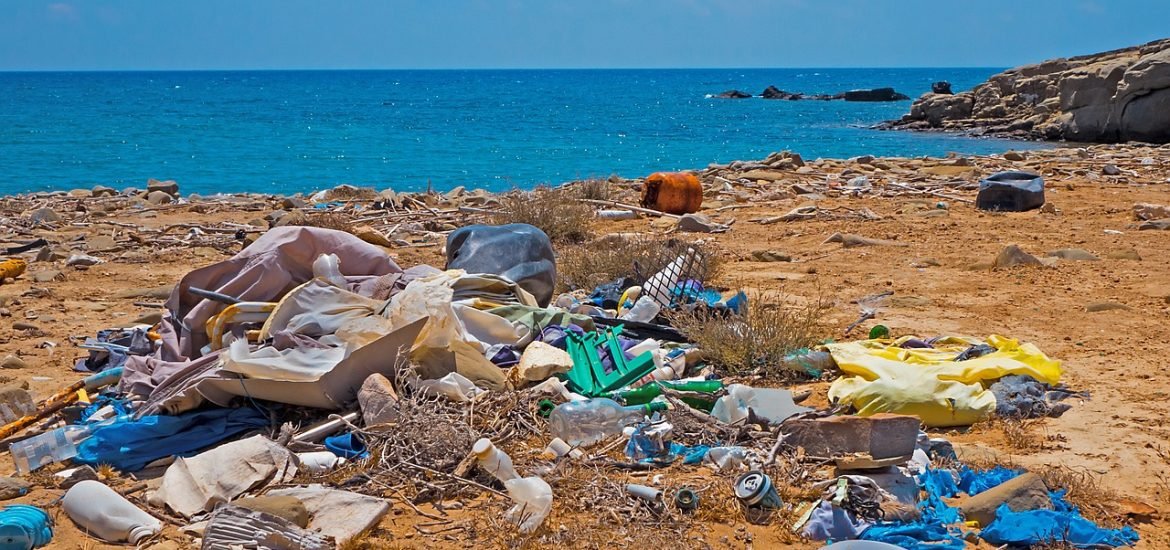
A project to disseminate information about the dangers of single-use plastic has organised a model sailing boat — named Flipflopi — to travel across the globe to reach thousands of people and communities.
Supported by Northumbria University, UK, the crew onboard the Flipflopi has recovered over 130 tonnes of plastics in the past ten months from the Lamu Archipelago on the Kenyan coast. The boat itself is built with recycled plastics using reclaimed materials found on Kenya’s beaches, including 30,000 discarded flip-flops, which are ubiquitous in the world’s oceans.
The project has also set up an exhibition in Lisbon, Portugal. Plastic: Remaking Our World will be at the Museum of Art, Architecture, and Technology (MAAT) until the end of August. The exhibition includes a movie exploring the relationship between nature and plastics and uses the Flipflopi boat as an inspirational example to rethink how we use plastic and find ways to encourage reuse.
“We adopt what we call a full systems approach to influence behaviour change, made up of education, innovation, and captivating campaigns to keep the issue front of mind,” said Simon Scott-Harden, an Assistant Professor at Northumbria University’s School of Design and part of the team behind Flipflopi and was involved in the engineering and design of the model. “This exhibition is a great example as it helps highlight to a global audience the novel things that can be done with plastic – its versatility really is astounding.”
The project also wants to highlight how natural microfibres from textiles and clothing can harm our environment. Dr. Kelly Sheridan, also from Northumbria University, is part of the team looking specifically at the abundance of microfibres and their impact on the environment.
“Textile fibres, known as microfibres, and their prevalence in the environment have been studied by forensic scientists for decades. However, the majority of recent environmental studies have overlooked that knowledge and focused only on the characterisation of microplastic fibres. This has led to inaccurate microfibre data and much misunderstanding in the literature, culminating in a general underestimation of the threat posed by natural fibres,” said Sheridan. “The Flipflopi research outcomes have demonstrated the strength of cross-collaboration, bringing together designers, environmental scientists, and forensic scientists to tackle a global environmental challenge. We need to foster a no-regrets approach, leveraging from others’ expertise if we are fully to understand environmental challenges and develop appropriate solutions to overcome them.”
The team wants to continue with the project, including establishing scientific collaborations with researchers from around the world and developing innovative ways to recycle plastic. The researchers are also running a petition aiming to collect one million signatures, asking for legislation to ban single-use plastics in East Africa, where the problem has reached epidemic proportions.
After Lisbon, the exhibition will move to the Hyundai Motorstudio in Busan, South Korea. You can find out more about the Flipflopi project and add your name to its petition at theflipflopi.com.